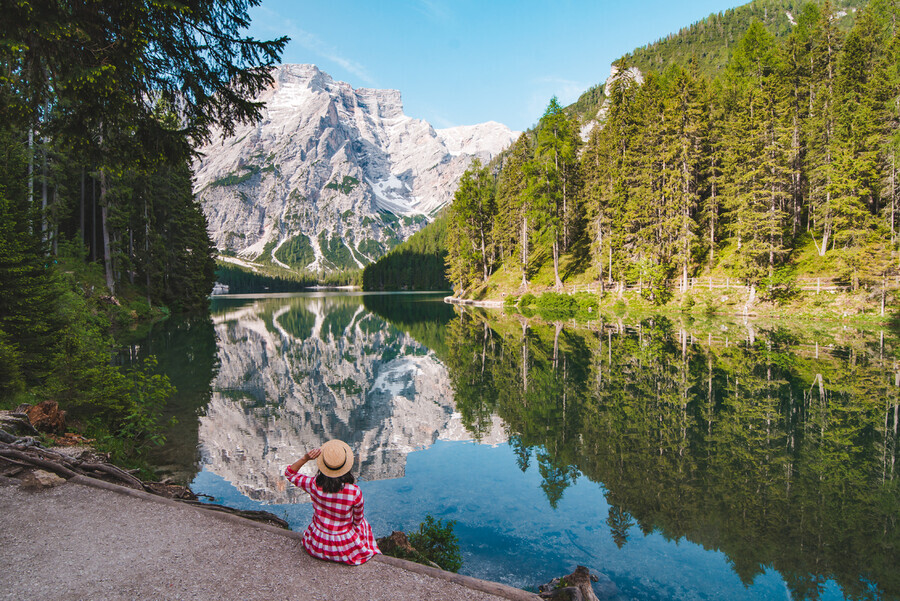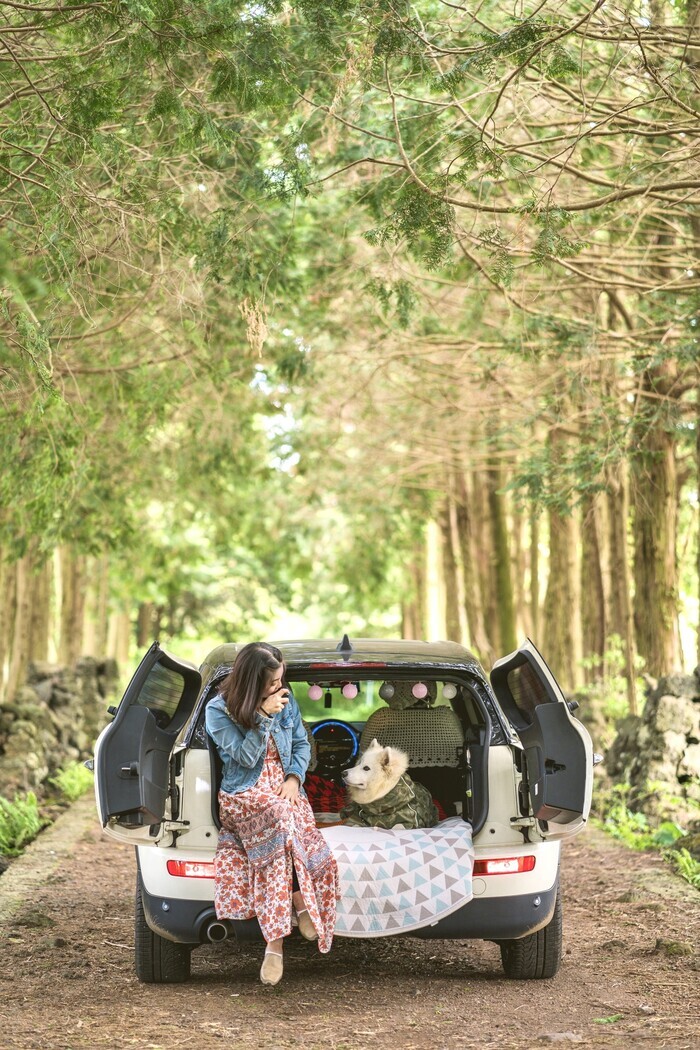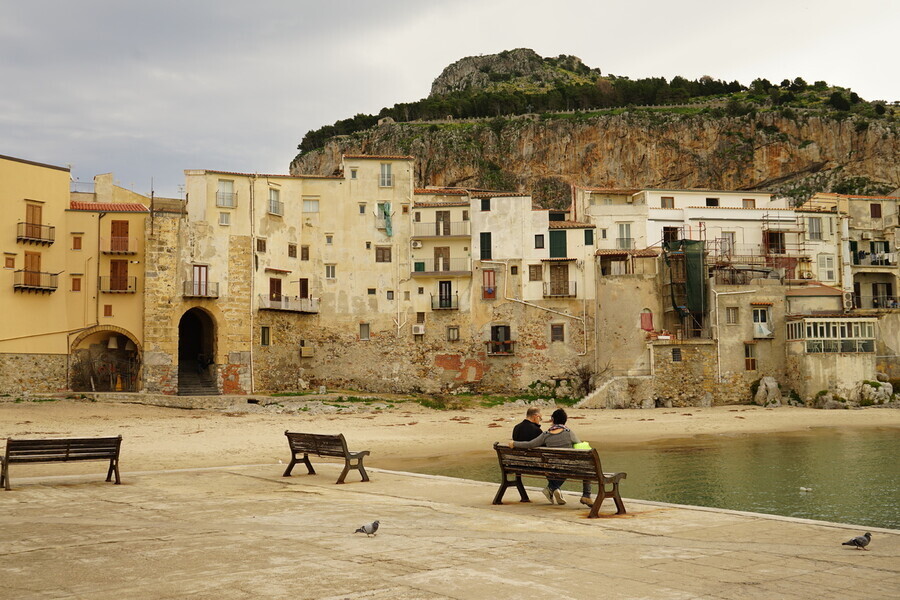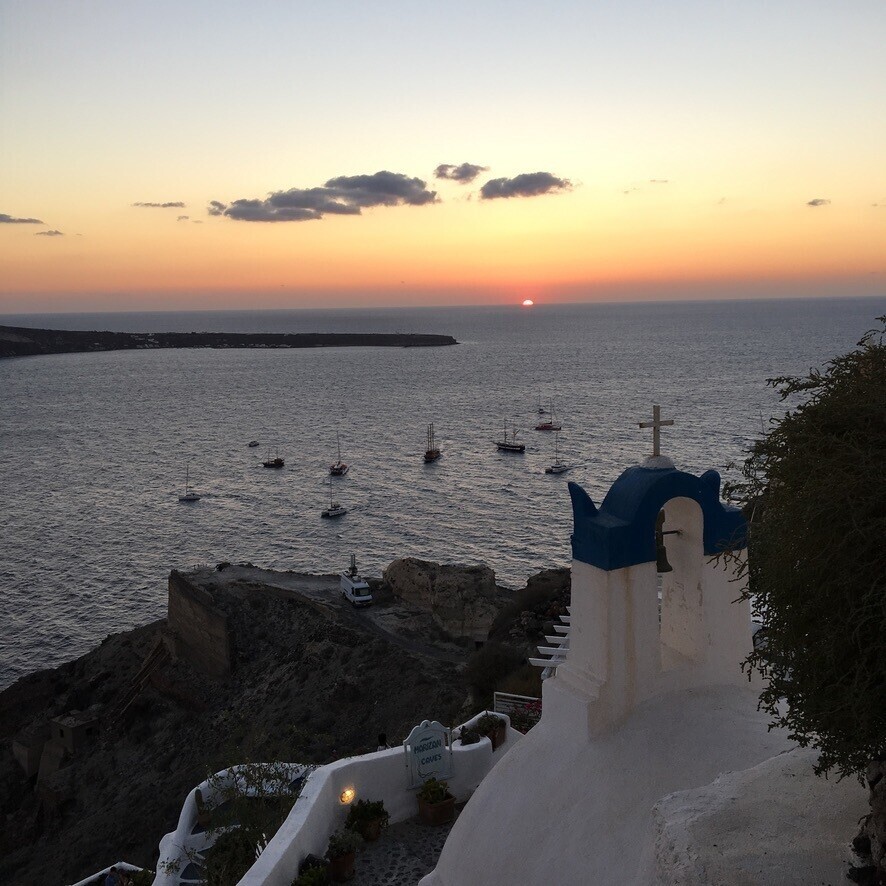hankyoreh
Links to other country sites 다른 나라 사이트 링크
[Interview] “Local,” “eco” are new travel keywords amid COVID-19 pandemic

The COVID-19 pandemic is changing our travel culture. Virtual tourism, ecotourism, and local tourism are some types of travel that have come into the spotlight. There’s also growing interest about “sustainable travel” that can protect communities and our environment.
Now that COVID-19 has brought us to this unexpected transition in tourism, how should we prepare for the future of travel? How much will tourism change after COVID-19?
On July 2, the Hankyoreh organized an online chat about those questions with Kim Min-cheol, travel writer and author of “We Can’t Forget Ourselves”; Hong Yu-jin, travel writer and author of “Car Camping Starts Today”; and Eum Seong-won, head of media policy for Airbnb Korea and author of “The Reconstitution of the City.”

Hankyoreh (Hani): Ecotourism, eco-friendly tourism, and local tourism are travel trends that have been getting attention recently. What would you say is the area of travel that has changed the most during COVID-19?
Hong Yu-jin (Hong): Given the difficulty of traveling overseas, Koreans are doing a lot of domestic traveling. Instead of visiting famous spots and restaurants as they used to do, an increasing number of people are avoiding places where people congregate and enjoying outdoor travel, camping in tents or their cars. And while there used to be a weekend rush, there’s been a noticeable uptick in weekday trips. Even the most famous spots used to be nearly empty during the week, but now there are lots of people no matter where you go.
Eum Seong-won (Eum): Changes in people’s lifestyles are leading to changes in how they travel. Given the surge of remote work, more people have gained the flexibility to travel whenever they want, without being tied to any specific place. As a result, we can see travel being dispersed across several periods, rather than being concentrated in the summer vacation. Another noticeable trend is that people are booking accommodations for longer periods. At Airbnb, the percentage of our global customers who choose long-term stays, for at least 28 days, rose from 14% in 2019 to 24% in the first quarter of 2021.
Kim Min-cheol (Kim): The change I’ve noticed is that people have started exploring their surroundings. I used to think I had to go far away to see or experience something amazing. But now I’ve started looking for hidden gems closer to home. I’d like to take my time traveling somewhere nearby when it’s less crowded, quieter, and more relaxing.
Hong: Since traveling overseas isn’t an option, I’ve been exploring every nook and cranny of this country since 2020.
Kim: This year alone, I’ve been to five places in Korea: Jeonju, Jecheon, Jeju, Gongju, and Gimhae.
Hong: Even if we can travel overseas in the future, I think the current changes to the way we travel in Korea will remain. This doesn’t have to do with COVID-19, but there was a boom in overseas travel in Japan that eventually shifted to domestic travel becoming extremely common.
Kim: Given the surging demand for domestic travel in recent months, supply has been increasing, too.
Hong: There are a lot of domestic tourism products that offer great value for money. Local governments have been developing ecotourism products, and some startups are raising awareness of sustainable tourism products.
Eum: The rediscovery of domestic destinations is changing demand, which ultimately brings about many other changes, including the development of new tourism products.
Hong: I think that domestic tourism is going to evolve in various ways in the future. To take car camping, for example, right now there’s an issue with trash. But I think that, eventually, car camping will take its place as an eco-friendly type of tourism.

Hani: How much has your traveling style changed regarding how you choose a destination, make preparations, and get around?
Kim: When I traveled overseas, I would try to rent someone else’s house and use public transportation, but I always tried to go as far away as possible, into a completely different environment. But now I try to go somewhere nearby without many people. I also try to get over that urge to do everything all at once.
Hong: For one thing, my suitcase has gotten lighter. I used to take everything with me when I traveled, but now I only bring the essentials. I don’t pack anything that I could easily find at my destination. I used to buy everything in advance — including paper cups, groceries, and snacks — and cart it around in my vehicle, which made for a heavy load. But nowadays, I can go anywhere in the country as long as I have a handkerchief, toiletries, and a travel mug.
Eum: I go traveling when I find somewhere I’d like to stay. I used to look for the destination and sights first and then look for accommodations nearby, but now my accommodations are my destination.
Hong: I prefer staying at guesthouses. It’s great to hear stories from the various people there. It’s also a good way to communicate with the locals. That’s the only way to truly immerse yourself in their daily lives.
Eum: I think that traveling somewhere means experiencing life there. In the early 2000s, my goal when traveling was to look like a local. Nowadays, it seems like more and more people feel that way.
Kim: A few years ago, it was trendy to spend a month on Jeju Island. These days, more people seem to be making reservations by the month and staying for long periods in other areas, too.

Hani: Sustainability is becoming a buzzword in tourism. What do you think is necessary for sustainable travel?
Hong: I think the two requirements for sustainable travel are conserving the environment in your travel destination and protecting local routines. That means accustoming ourselves to inconvenience. If we cut down on disposable goods and eat at local restaurants, for example, we can benefit the local economy while also taking care of local routines.
Eum: It’s sometimes tricky to deal with recycling while traveling. I think it’s important for tourists to feel comfortable asking locals about that kind of thing. Those habits are taking shape nowadays as people go on longer trips to experience life as a local. That can involve locals explaining how to use public transportation and bike-sharing services and tourists conserving water and electricity as if they were at home.
Kim: I find myself wondering how I could make traveling less harmful to the planet by reducing my carbon emissions. I think I’m getting a sense about the right way to travel. In the past, I used to be a lazy traveler and would hop on a plane even for short distances. But on future trips, I think I’ll cover less ground and stay longer when I get there.
Eum: More people seem to be thinking about ethical consumption, about how to be a good consumer, not only in tourism but throughout society.
Kim: Customers keep demanding that companies make ethical products and distribute them in an ethical way.
Hong: There has been a campaign for ethical consumption in the past, but COVID-19 seems to have given that campaign a boost. Underlying that is the message that we all need to find a way to coexist on our planet. I think we’ll see the drive for coexistence continuing in the area of tourism.
By Her Yun-hee, staff reporter
Please direct comments or questions to [english@hani.co.kr]

Editorial・opinion
![[Editorial] Intensifying US-China rivalry means Seoul must address uncertainty with Beijing sooner than later [Editorial] Intensifying US-China rivalry means Seoul must address uncertainty with Beijing sooner than later](https://flexible.img.hani.co.kr/flexible/normal/500/300/imgdb/original/2024/0517/8117159322045222.jpg) [Editorial] Intensifying US-China rivalry means Seoul must address uncertainty with Beijing sooner than later
[Editorial] Intensifying US-China rivalry means Seoul must address uncertainty with Beijing sooner than later![[Column] When ‘fairness’ means hate and violence [Column] When ‘fairness’ means hate and violence](https://flexible.img.hani.co.kr/flexible/normal/500/300/imgdb/original/2024/0516/7417158465908824.jpg) [Column] When ‘fairness’ means hate and violence
[Column] When ‘fairness’ means hate and violence- [Editorial] Yoon must stop abusing authority to shield himself from investigation
- [Column] US troop withdrawal from Korea could be the Acheson Line all over
- [Column] How to win back readers who’ve turned to YouTube for news
- [Column] Welcome to the president’s pity party
- [Editorial] Korea must respond firmly to Japan’s attempt to usurp Line
- [Editorial] Transfers of prosecutors investigating Korea’s first lady send chilling message
- [Column] Will Seoul’s ties with Moscow really recover on their own?
- [Column] Samsung’s ‘lost decade’ and Lee Jae-yong’s mismatched chopsticks
Most viewed articles
- 1For new generation of Chinese artists, discontent is disobedience
- 2[Column] US troop withdrawal from Korea could be the Acheson Line all over
- 3[Editorial] Transfers of prosecutors investigating Korea’s first lady send chilling message
- 4[Column] When ‘fairness’ means hate and violence
- 5Xi, Putin ‘oppose acts of military intimidation’ against N. Korea by US in joint statement
- 6[Exclusive] Unearthed memo suggests Gwangju Uprising missing may have been cremated
- 7China calls US tariffs ‘madness,’ warns of full-on trade conflict
- 8[Editorial] Intensifying US-China rivalry means Seoul must address uncertainty with Beijing sooner t
- 9S. Korea “monitoring developments” after report of secret Chinese police station in Seoul
- 10For Korea’s Justice Ministry, no place is sacred from immigration raids